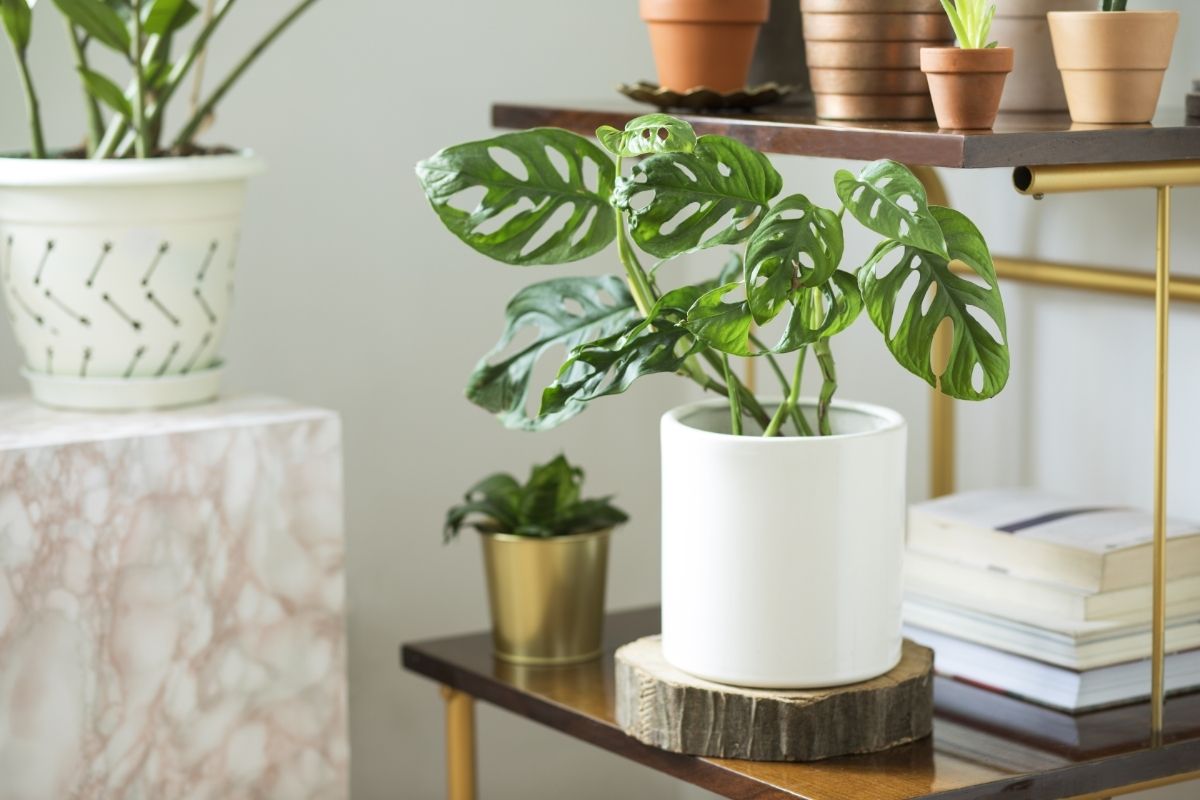Have you ever wondered if a plant can live forever? Like, would it be possible for a plant to just keep growing and thriving indefinitely?
It’s a fascinating question and one that scientists have been exploring for a long time, but what is the answer to it?

When we think of immortality, we usually think of something that can live forever without ever aging or deteriorating. But is that even possible for a plant?
So many questions are popping into our heads, and we know they are popping into yours too, so let’s keep reading below to see if there’s an answer to all that!
The Aging Process In Plants
First things first, let’s talk about the aging process in plants.
Just like humans and animals, plants also age and eventually die, and as they grow, they go through a process called senescence, which is basically the deterioration of cells and tissues over time.
Senescence is influenced by a number of factors, including genetics, environment, and even stress, which result in different plants having different lifespans.
For example, annual plants typically only live for one growing season, while some trees can live for thousands of years.
Regeneration In Plants
While plants may not be able to live forever in the traditional sense, they do have an incredible ability to regenerate.
Regeneration is the process by which a plant can regrow damaged or lost tissue, and some plants can do this indefinitely.
One well-known example of a plant with incredible regenerative abilities is the giant sequoia tree. These trees can regenerate bark and branches over and over again, essentially making them immortal in a sense.
Theoretical Possibilities For Immortality In Plants
So, if regeneration is possible, could it be the key to achieving true immortality in plants?
Some scientists believe it’s possible, and they’ve proposed theories like activating dormant stem cells, rejuvenating tissues, or finding ways to halt senescence altogether.
While these ideas are exciting, they’re still mostly theoretical at this point.
Indeed, there’s still a lot of research that needs to be done to fully understand the aging process in plants and to explore the possibilities for immortality.
Real-Life Examples Of Long-Lived Plants
But while we may not have discovered the secret to immortality in plants just yet, there are still some plants out there that have managed to live for a very long time.
Take the bristlecone pine, for example. Some of these trees are over 5,000 years old!
So why have these plants managed to live for so long?
It’s likely a combination of factors, including genetics, environment, and adaptation. These plants have found ways to survive and thrive in their unique environments, and they’ve been doing it for thousands of years.
Another example of a long-lived plant is the giant sequoia, which can live for over 3,000 years.
Not only that but these massive trees can grow to be over 300 feet tall and have trunks that are up to 40 feet in diameter!
In this case, their longevity can also be attributed to their thick bark, which protects them from forest fires, and their ability to regenerate new growth after experiencing damage.
The Importance Of Plant Longevity
You might be wondering why it even matters if a plant can live forever; after all, we don’t typically think of plants in terms of their lifespan or mortality.
However, there are actually some important reasons why plant longevity is worth studying.
Improved Conservation Methods
For one thing, understanding the aging process in plants can help us develop better strategies for crop management and conservation.
If we can identify the genetic factors that contribute to a plant’s lifespan, for example, we might be able to breed crops that are more resilient and longer-lasting.
Historical Insights
Long-lived plants can also provide valuable insights into the history and ecology of different regions, as by studying the growth rings in ancient trees, for example, scientists can learn about past climate patterns and environmental changes.

Cultural And Spiritual Significance
Another reason why plant longevity is important is that it can have significant cultural and spiritual significance.
For many Indigenous communities around the world, certain plants are considered sacred and are believed to hold important cultural knowledge and wisdom.
Therefore, by studying these plants and understanding their longevity, we can gain a deeper appreciation for their role in human culture and history.
Improved Ecological System
Moreover, long-lived plants can have important ecological roles as some trees, for example, provide critical habitats for other organisms, including birds, insects, and mammals.
These trees also help regulate local weather patterns and contribute to soil health and nutrient cycling.
Discovery Of Natural Medicines
Finally, studying plant longevity can also have important implications for human health since many plant species, including those that have been shown to live for a long time, contain compounds that have medicinal properties.
As a result, by understanding the genetic and biochemical mechanisms that contribute to plant longevity, we may be able to identify new sources of natural medicines and treatments for a range of human illnesses and diseases!
Challenges To Achieving Plant Immortality
While the idea of a plant that can live forever is intriguing, there are still many challenges to overcome before we can make it a reality.
One major obstacle is the fact that plants are constantly exposed to stress and environmental pressures that can trigger senescence.
In addition, many of the proposed methods for achieving plant immortality would require us to fundamentally alter the way plants grow and develop.
For example, activating dormant stem cells or rejuvenating tissues would involve manipulating the plant’s natural growth patterns in ways that we don’t fully understand yet.
The Bottom Line
So, can a plant live forever? While we don’t have a clear answer yet, it’s clear that plant longevity is a fascinating and important area of study.
By understanding the aging process in plants and exploring the possibilities for regeneration and immortality, we can gain a deeper appreciation for the incredible resilience and adaptability of the natural world.
In the future, we may discover new ways to extend the lifespans of plants and even achieve true immortality.
But even if we never manage to create a plant that lives forever, we can still learn a lot from the long-lived trees and other plants that have managed to thrive for centuries or even millennia!
- Best Hanging Plant For Low Light - September 4, 2023
- Best Indoor Plants Florida - August 28, 2023
- Best Plants For Bathroom Smells - August 21, 2023








